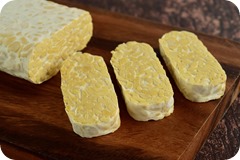Polycystic ovary syndrome (PCOS) is a common endocrine disorder in women, which includes metabolic changes of hyperinsulinemia, insulin resistance, hyperandrogenism and dyslipidemia. Newer research also demonstrates an inflammatory component as well. PCOS is significant not only in day to day manifestations and experiences such as acne, hair thinning, hirsutism, abnormal menstrual cycles, infertility, and overweight issues, but is also a significant risk factor for type 2 diabetes, coronary heart disease, hyperlipidemia and endometrial cancer.
Dietary and supplemental soy isoflavones have a growing body of evidence in animal and human studies in areas of relevance to women with PCOS such as protective effects against coronary heart disease and hyperlipidemia and in addition, protective effects in areas of osteoporosis, various forms of chronic renal disease and a modest effect on hot flashes associated with menopause. These favorable effects and the metabolic effects of soy isoflavones on women with PCOS is the subject of this study.
This prospective, randomized, double-blind, placebo-controlled clinical trial was conducted in 70 women with PCOS, aged 18-40 yeas, in Iran. Women were matched for body mass index, phenotypes of PCOS and age and then were randomized to receive either soy isoflavone supplement (n=35) or placebo (n=35) for 12 weeks. No change in physical activity, or other nutritional supplements was allowed. Food and physical activity records for 3 days were done at baseline, 3, 6, 9 weeks and at the end of the intervention.
Women in the intervention group received 50 mg/day soy isoflavones in capsule form containing 37.5 mg genistein, 10 mg daidzein and 2.5 mg glycitein for 12 weeks.
All women completed the trial and food records were similar throughout the trial in mean dietary macro and micronutrient intake between the two groups. After 12 weeks, compared to the placebo group, soy isoflavones significantly decreased circulating serum insulin (-1.2 vs + 2.8), and improve insulin sensitivity with 3 other measurements: HOMA-IR (-0.3 vs + 0.6) and HOMA-B (-4.4 vs + 10.7) and increased QUICKI (+0.0009 vs -0.01). Soy isoflavone supplementation also resulted in significant reductions in total testosterone (-0.2 vs + 0.1) free androgen index (-0.03 vs + 0.02), triglycerides (13.3 vs + 10.3) and VLDL cholesterol (-2.7 vs + 2.0) vs placebo. There was a significant increase in sex hormone binding globulin (SHBG) (+ 3.9 vs – 1.3), total plasma glutathione and a significant decrease in malondialdehyde.
 Commentary: It is clear, soy isoflavones at 50 mg/day for 12 weeks in women with PCOS had beneficial effects on markers of insulin resistance, total testosterone, SHBG, free androgen index, triglycerides, VLDL, glutathione and malondialdehyde, however it did not have any effect on fasting plasma glucose and biomarkers of inflammation and oxidative stress. This improvement in insulin resistance and lowering of androgens is the most compelling impact for these women given the key underlying mechanisms of PCOS. Based on previous research, I have long included soy isoflavones as part of my dietary and supplemental approach in women with PCOS. The traditional soy foods (tofu, tempeh, soy milk, edamame) are also good sources of vegetable protein, monounsaturated fats and complex carbohydrate. I consider including soy in the diet of women with PCOS, most days, a fundamental aspect of reducing her risk of type 2 diabetes and coronary heart disease.
Commentary: It is clear, soy isoflavones at 50 mg/day for 12 weeks in women with PCOS had beneficial effects on markers of insulin resistance, total testosterone, SHBG, free androgen index, triglycerides, VLDL, glutathione and malondialdehyde, however it did not have any effect on fasting plasma glucose and biomarkers of inflammation and oxidative stress. This improvement in insulin resistance and lowering of androgens is the most compelling impact for these women given the key underlying mechanisms of PCOS. Based on previous research, I have long included soy isoflavones as part of my dietary and supplemental approach in women with PCOS. The traditional soy foods (tofu, tempeh, soy milk, edamame) are also good sources of vegetable protein, monounsaturated fats and complex carbohydrate. I consider including soy in the diet of women with PCOS, most days, a fundamental aspect of reducing her risk of type 2 diabetes and coronary heart disease.
Other evidence based natural ingredients to explore for PCOS, some of which have appeared on my blog, include: N-acetyl cysteine, myo-inositol, D Chiro inositol, black cohosh, spearmint tea, cinnamon, licorice root and more, as well as lifestyle interventions of regular aerobic exercise, and low carb diets. Please read the research in these areas, which has become very reliable in our ability to help women with PCOS, and please be sure to investigate the importance of addressing the underlying insulin resistance and androgen excess, as well as target the therapies to the specifics of the issues of the case… ex/ infertility, irregular menses, acne, hirsutism, overweight.
Reference:
Jamilian M, Asemi Z. The effects of soy isoflavones on metabolic status of patients with polycystic ovary sundrome. J Clin Endocrinol Metab. 101:0000-0000, 2016.

